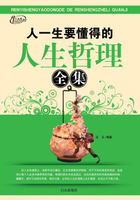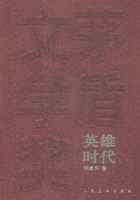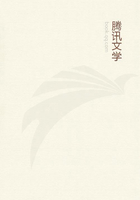The Diet met in January 1521, but despite the efforts of Aleandro the majority of the princes still failed to realise the gravity of the situation. Feeling against Rome was running very high in Germany at the time. Many of the princes insisted on presenting a document embodying the grievances of Germany (/Centum Gravamina/)[20] to the papal ambassador, while even such an orthodox supporter of the Church as Duke George of Saxony, brought forward very serious complaints against the clergy, accompanied by a demand that a General Council should be summoned to restore peace to the Church. Luther, strengthened by the safe conduct of the Emperor and by a secret understanding with some of the princes and knights, set out from Wittenberg for Worms, where he arrived in April 1521. On presenting himself before the Diet he was invited to state if he were really the author of the works published under his name, copies of which were presented to him, and, if so, was he willing to retract the doctrines contained in them. In reply to the former of these questions he admitted the authorship of the volumes, but asked for time to consider what answer he should make in regard to the latter. A day was allowed him for consideration. When he appeared again, all traces of the hesitation and nervousness that marked his attitude at the previous session had disappeared. He refused to retract his opinions, and made it clear that he no longer acknowledged the authority of the Pope or of General Councils as a safe guide in matters religious.
Thereupon the Emperor intimated to the princes that he was determined to take vigorous action against such a heretic and disturber of the public peace, though at the request of some of the princes he allowed time for private conferences between Luther and representative Catholic theologians, notably Eck and Cochlaeus.[21] These conferences having failed to produce any result the Emperor issued an order (25th April) commanding Luther to depart from Worms without delay, and forbidding him to preach to the people on his journey under pain of forfeiting his safe conduct. A month later Charles V. published a decree placing Luther under the ban of the Empire. He was denounced as a public heretic whom no one should receive or support; he was to be seized by any one who could do so, and delivered to the Emperor; his writings were to be burned, and all persons proved guilty of countenancing himself or his errors were liable to severe punishment.
Many hoped that the decree might put an end to the confusion, but in reality Charles V. was powerless to enforce it, especially as the majority of the princes were unwilling to carry out its terms in their territories. Hence, outside the hereditary dominions of the House of Habsburg, the lands of Joachim I. of Brandenburg and of Duke George of Saxony, and in Bavaria, it remained a dead letter.
On the route from Worms Luther was taken prisoner by soldiers of the Elector, Frederick of Saxony, according to arrangements that had been made for his protection, and was brought to the castle at Wartburg where he remained for close on a year (May 1521-March 1522) under the assumed name of Yonker George, safe in spite of the imperial decrees.
In the silence of his retreat at Wartburg Luther had an opportunity for reflection on the gravity of the situation that he had created. At times he trembled, as he thought of separating himself definitely from the great world-wide organisation which recognised the jurisdiction of the Bishop of Rome, and of setting up his own judgment against the faith that had been handed down for centuries, and that was supported by the ablest scholars from the days of Clement of Rome to those of St. Thomas and St. Bonaventure.
In his anxiety of mind he was the victim of hallucinations, believing that the spirit of evil appeared to him in visible form, and held commune with him in human speech. He was assailed, too, with violent temptations of the flesh, which reduced him to a state bordering on despair. But these moments of depression passed away, to be succeeded by fits of wild exultation in which he rejoiced at the storm that he had created already, and at the still greater storm he was soon to create. He set to work with tireless energy, believing himself to be inspired from on high as was the apostle, St. John, during his stay in the island of Patmos. At the instigation of his friends, who urged him to attack the celibacy of the monks and nuns, he turned his attention to this question, and issued a work /On Monastic Vows/, in which he declared that such vows of chastity, being opposed to the freedom of the Gospel, were sinful and should be neglected. In his book /On the Mass/ he assailed the Mass and the whole theory of the Christian priesthood, declaring that every believer was in a true sense a priest. He poured out a most violent torrent of abuse against Henry VIII. of England, who, in his /Defence of the Seven Sacraments/, had ventured to join issue with the German reformer. At the same time he undertook to prepare a translation of the New Testament as a means of advancing his propaganda. By aid of mis-translations and marginal notes he sought to popularise his views on Faith and Justification, and to win favour with the people by opening to them the word of God, which he asserted falsely had been closed against them for centuries.
All his pamphlets were couched in popular language and were exactly the kind of works likely to appeal to the masses of the people, as well as to the debased instincts of those who had entered into the religious state in response to the wishes of their parents or guardians rather than in obedience to the call of God. But while Luther thus catered for the multitude, Melanchthon sought to gain the support of the more educated classes by throwing Luther's teaching into scientific and systematic form in his work, /Loci Communes/(1521), a book that remained for centuries the standard authority on Lutheran teaching.

